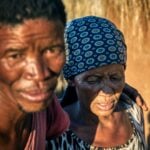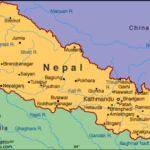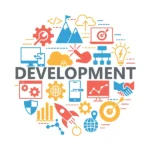At the start of 2026, Finland’s Ministry for Foreign Affairs prioritized humanitarian assistance to address urgent crises worldwide, with a particular focus on Ukraine, major refugee situations in Africa, and humanitarian needs in the Middle East. Out of a total €72 million in humanitarian aid allocated this year, €20 million has been earmarked specifically for… [Read More]
Advancing Adolescent Health in Central and West Africa
The International Development Research Centre (IDRC) launched the webinar series “Thriving in Safety: Advancing Adolescent Health and Rights and Ending Gender-Based Violence in Central and West Africa” to strengthen adolescent health and rights, marking the 30th anniversary of the International Conference on Population and Development Programme of Action. The series aimed to foster knowledge exchange,… [Read More]
Introducing the GSMA Innovation Fund for Sustainable Mobile Solutions
The GSMA has launched the Innovation Fund for Green Transition for Mobile, targeting small and growing enterprises across Africa, Central and South America, and South and Southeast Asia. The fund aims to address the dual challenge of advancing digital inclusion while promoting the clean energy transition, alongside exploring innovative solutions for refurbished handsets. By integrating… [Read More]
Leading the Fight Against AMR: Ghana Advances People-Focused Strategies in Africa
Antimicrobial resistance (AMR) occurs when bacteria, viruses, fungi, and parasites no longer respond to antimicrobial medicines, making infections harder or impossible to treat. This silent crisis is among the world’s top ten global health threats. AMR makes once-curable infections more difficult and costly to treat, placing immense pressure on health systems and endangering lives. Globally,… [Read More]
WHO Hosts Global Experts in Brazzaville to Boost Filovirus Clinical Care
The World Health Organization (WHO), with support from the Foreign, Commonwealth and Development Office (FCDO), convened a five-day Filovirus Disease Optimized Supportive Care Workshop in Brazzaville to update and harmonize clinical management guidelines for filovirus diseases (FVD). The workshop brought together 50 clinicians, researchers, and public health specialists from around the world to strengthen preparedness… [Read More]
UN Alerts: 280,000 Displaced Amid Escalating South Sudan Fighting
The recent escalation of fighting in South Sudan has intensified risks for civilians and aid workers, with three humanitarian personnel killed between 7 and 16 February in Jonglei and Upper Nile states, according to the UN Office for the Coordination of Humanitarian Affairs (OCHA). Despite repeated commitments by authorities to allow relief operations, access to… [Read More]
Ministers Celebrate Key Step Forward for Endangered Bird Conservation
A major milestone has been reached in Ireland’s efforts to protect vulnerable ground-nesting bird species, as 170 landowners have committed to conservation management through the Breeding Waders European Innovation Partnership (EIP). This initiative brings over 2,340 hectares of land under active management to support breeding waders, including the Eurasian Curlew, Eurasian Oystercatcher, Northern Lapwing, Common… [Read More]
20 Years of the Maritime Labour Convention: Ensuring Workers’ Rights at Sea
The International Labour Organization (ILO) and the International Maritime Organization (IMO) are commemorating the 20th anniversary of the Maritime Labour Convention, 2006 (MLC, 2006), a landmark treaty that has significantly improved working and living conditions for seafarers worldwide while promoting fair competition in global shipping. Adopted on 23 February 2006 through a unique tripartite consensus… [Read More]
Asia Migrant Workers Struggle in Fishing and Seafood Processing
A regional survey conducted by the International Labour Organization (ILO) highlights persistent challenges faced by migrant workers in Asia’s fishing and seafood processing industries, emphasizing the urgent need to ratify and implement international labour standards on recruitment, work in fishing, and forced labour. The study, titled “Towards fair seas: Recruitment and working conditions for migrant… [Read More]
Updated Report: Ukraine’s Recovery and Reconstruction Needs
Four years into Russia’s invasion, Ukraine faces unprecedented recovery and reconstruction needs, with the updated Rapid Damage and Needs Assessment (RDNA5) estimating costs at nearly $588 billion (€500 billion) over the next decade, almost three times the country’s projected 2025 nominal GDP. This assessment, prepared jointly by the Government of Ukraine, the World Bank Group,… [Read More]
World Bank Partnership Boosts Job Creation in Papua New Guinea
PORT MORESBY, February 23, 2026 – The World Bank Group has launched a six-year partnership with Papua New Guinea to support key reforms and investments aimed at creating jobs, improving public services, and building long-term resilience. This collaboration, formalized through the approval of the Country Partnership Framework (CPF) on February 17, 2026, will guide World… [Read More]
Congo Basin Countries Chart Carbon Market Strategies
Six countries of the Congo Basin—Cameroon, Central African Republic, Democratic Republic of Congo, Equatorial Guinea, Gabon, and Republic of Congo—have launched Strategic Roadmaps for Carbon Market and Climate Finance in the Forest Sector. Developed with support from the World Bank, these roadmaps aim to transform the region’s forest wealth into engines for climate-resilient growth, sustainable… [Read More]
Malawi Economy Outlook: Unlocking Private Sector Growth
LILONGWE, February 24, 2026 — Malawi’s economy faces persistent challenges after years of high inflation, widening fiscal and external deficits, and declining exports, according to the World Bank Group’s latest Malawi Economic Monitor (MEM), Getting Reforms Right. With 270,000 young people entering the labor market annually but only around 40,000 formal jobs created, generating employment… [Read More]
Timor-Leste Uses Data-Driven Census to Boost Social Protection and Reduce Child Stunting
The Government of Timor-Leste, in collaboration with the United Nations World Food Programme (WFP), the Ministry of Social Solidarity and Inclusion (MSSI), and the National Institute of Statistics of Timor-Leste (INETL), has launched a major data-driven initiative to modernize the country’s social protection system and improve maternal and child nutrition outcomes. In 2026, INETL will… [Read More]
SME Success Stories Worldwide: Insights Nepal Can Adopt (II)
This second part of the analysis highlights additional global best practices that Nepal can adopt to strengthen its SME ecosystem. While Part I focused on financing and regulation, this section emphasizes digital infrastructure, public procurement, human capital, innovation, inclusion, and systemic measurement as key pillars for SME growth. Countries like the USA, Canada, Germany, Australia,… [Read More]
Small Grants, Big Lessons: Sustainability in Global Health
Philanthropy has long faced the challenge of ensuring that investments create lasting change rather than short-term results. This issue has become especially urgent in global health, where funding pressures and deep cuts make it critical for donors to support programs that local governments can sustain independently. Ensuring long-term impact requires strategies that promote local ownership… [Read More]
Lessons from Three Megadiverse Countries on Biodiversity Protection
GIZ is supporting eight partner countries in strengthening their capacity to implement national biodiversity targets, including Brazil, the Democratic Republic of the Congo (DR Congo), and Indonesia, which together host 60% of the world’s tropical forest ecosystems. These forests are critical for addressing biodiversity loss and climate change. To promote cooperation, the project organized study… [Read More]
RAIN Challenge Insights: Driving Innovation for Climate Resilience
Over the past three years, the Resilient Agriculture Innovations for Nature (RAIN) Challenge, in partnership with the Shockwave Foundation and Munich Re Foundation, has supported East African innovators in transforming early-stage, nature-positive agricultural ideas into scalable, investment-ready solutions. The initiative focuses on seed-level innovations that strengthen agricultural systems and advance climate resilience in local communities,… [Read More]
$10 Million Fund to Advance AI Designed By and For People
The MacArthur Foundation has announced $10 million in aligned grantmaking to support Humanity AI, a national initiative dedicated to building a human-centered future in which artificial intelligence (AI) is designed by and for people. Humanity AI brings together a coalition of funders across the arts, labor, democracy, education, and security sectors, aiming to drive more… [Read More]
Albania and UK Exchange Best Practices on Constituency Engagement
Listening and responding to constituency needs is a fundamental part of representative democracy and a core responsibility of any Member of Parliament (MP). A recent mentoring session brought together UK parliamentarians and first-time Albanian MPs to explore effective ways for representatives to connect with and respond to their constituencies. The exchange focused on strategies to… [Read More]
Why Strong Education Systems Drive Life Skills Development
In 2024, UNHCR, the UN Refugee Agency, and the Vodafone Foundation launched a Life Skills course under the Instant Network Schools programme to support displaced students’ learning. A recent evaluation of the course highlighted a key insight: life skills do not develop in isolation but emerge and are sustained through strong, structured, and inclusive education… [Read More]
Georgia Advances Aquaculture with National Fish Traceability Integration
Until now, most fish farms in Georgia have relied on paper notebooks to record information on feedings, health treatments, and production. This labor-intensive approach has limited disease prevention, slowed decision-making, and made traceability difficult. To address these challenges, Georgia is preparing to integrate its aquaculture sector into the National Animal Identification and Traceability System (NAITS)… [Read More]
FAO Assists Tuvalu in Launching First National Crops and Livestock Census
In Funafuti, Tuvalu, the Food and Agriculture Organization of the United Nations (FAO) is supporting the country’s first National Crops and Livestock Census by providing technical and methodological assistance in collaboration with the Ministry of Natural Resources Development, the Central Statistics Division, and the Pacific Community (SPC). A training program has been launched to equip… [Read More]

























